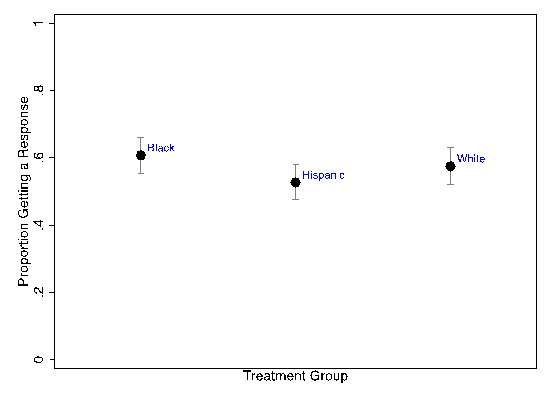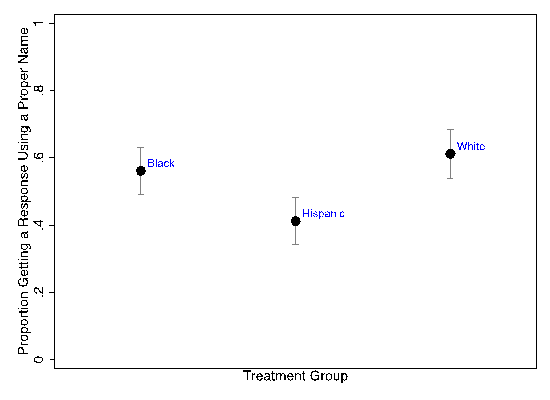
 Despite great strides in Civil Rights and representation, there are still concerns over racial bias in the provision of public services. In new research Katherine Levine Einstein and David Glick examined whether or not access to public housing is affected by racial bias by sending emails with ostensibly black, white, and Hispanic names to more than 1,000 housing authorities. Surprisingly, they found no evidence of anti-black racial bias in the response rate, though there was some evidence of anti-Hispanic discrimination. They comment that this surprising lack of discrimination against blacks could be down to public housing authority workers being more racially liberal as well as greater monitoring for such discrimination under the Fair Housing Act.
Despite great strides in Civil Rights and representation, there are still concerns over racial bias in the provision of public services. In new research Katherine Levine Einstein and David Glick examined whether or not access to public housing is affected by racial bias by sending emails with ostensibly black, white, and Hispanic names to more than 1,000 housing authorities. Surprisingly, they found no evidence of anti-black racial bias in the response rate, though there was some evidence of anti-Hispanic discrimination. They comment that this surprising lack of discrimination against blacks could be down to public housing authority workers being more racially liberal as well as greater monitoring for such discrimination under the Fair Housing Act.
Contemporary events make it impossible to ignore the salience of race in American public policy provision, particularly in cities. Behind the very pointed dialogue about the magnitude, or lack thereof, of bias in policing, are broader questions about bias in public service provision. In the past, social scientists have used experimental audit studies to address questions of bias across areas such as private housing markets, employment opportunities, and voter registration.
Using this same audit methodology, we turned our focus towards public housing. This area is both substantively important on its own as well as a potential stand in for other professional public bureaucracies that affect access to valuable government resources. Our findings in this context actually suggest that there may be at least some, and possibly many, bureaucratic pockets where racial discrimination is not endemic. In doing so, this study at least suggests some potential mechanisms though which potential bias can be reduced and therefore points to possible policy prescriptions.
We created email addresses with ostensibly black, white, and Hispanic names (male and female). We then randomly assigned over 1,000 housing authorities (all metropolitan and micropolitan area core cities) to receive a generic and routine constituent assistance request from one of these emails. Figure 1 breaks down the response rates by race of emailer.
Figure 1 – Proportion of emails receiving a response by racial/ethnic group

Strikingly—and in contrast with every other published audit-style studies of racial discrimination of which we are aware—we find no evidence of anti-black bias. Indeed, black emailers actually received the highest response rate. The same patterns (or non-patterns) manifest when looking at the timeliness of the responses.
The response rates in Figure 1 tentatively point, however, to possible anti-Hispanic discrimination, with Hispanics receiving the lowest response rate of the three racial/ethnic groups. Stronger evidence of anti-Hispanic bias emerges in Figure 2, which breaks down the proportion of putative constituents addressed by name by racial/ethnic group. We did this analysis to approximate the friendliness or welcoming tone of the emails. We find that Hispanics were a full 20 percentage points less likely to be greeted by name than their black and white counterparts. Named salutations are psychologically important to people. Moreover, they could potentially signal the effort a caseworker plans to put into a constituent service request. By discouraging follow up or implying a hard road ahead, unfriendly responses could indirectly affect access to the tangible services at stake.
Figure 2 – Proportion of emails receiving a named salutation by racial/ethnic group

The evidence of anti-Hispanic bias is concerning, but consistent with a wide array of prior scholarship. The more surprising finding is that housing officials do not appear to discriminate against black constituent service requests. This lack of bias does not appear to be a consequence of black overrepresentation in public housing staff or bureaucratic professionalism: housing officials of the same ethnicity were no more likely to address constituents by name than by those that were not. Similarly, more highly rated housing authorities (based on ratings by the Department of Housing and Urban Development) did not show differing levels of racial discrimination.
There are several possible explanations. First, bureaucrats that work for public housing authorities could be more racially liberal, perhaps in part because of their direct exposure to impoverished individuals from a variety of different racial/ethnic backgrounds; this possibility is somewhat bolstered by the fact that discrimination among housing bureaucrats in our study appears to be somewhat more muted in diverse locations. Second, regular monitoring of housing discrimination mandated by the Fair Housing Act may render housing bureaucrats more familiar with tools—like audit studies—designed to measure discrimination and more knowledgeable generally about the potential for (and need to prevent) discrimination. Previous scholarship suggests that bureaucrats who know they are being monitored are less likely to engage in discriminatory practices.
Our experimental results thus suggest that, while discrimination remains endemic in American political life—and, indeed, anti-Hispanic bias manifests in our study—there may be policy solutions that could render bureaucrats more aware and able to mitigate the consequences of racial discrimination. We hope that future research can help to further unpack why racial discrimination among housing officials appears somewhat lower than in other arenas in the hopes that policymakers can use those insights to tackle discriminatory conditions more broadly.
This article is based on the paper, ‘Does Race Affect Access to Government Services? An Experiment Exploring Street-Level Bureaucrats and Access to Public Housing’ in the American Journal of Political Science.
Featured image credit: woodleywonderworks, Flickr, CC-BY-2.0
Please read our comments policy before commenting.
Note: This article gives the views of the author, and not the position of USAPP– American Politics and Policy, nor of the London School of Economics.
Shortened URL for this post: http://bit.ly/2bfxQPu
______________________
 Katherine Levine Einstein – Boston University
Katherine Levine Einstein – Boston University
Katherine Levine Einstein is Assistant Professor at Boston University. Her research and teaching interests broadly include urban politics and policy, racial and ethnic politics, political geography, and American public policy.
 David Glick – Boston University
David Glick – Boston University
David Glick is an Assistant Professor in the Department of Political Science at Boston University. His primary research and teaching interests include political institutions – especially courts, public opinion about institutions, learning and decision making, policy diffusion, law and regulation. His work draws on a mix of archival evidence, personal interviews, formal theory, statistical analysis, surveys, and laboratory experiments.





